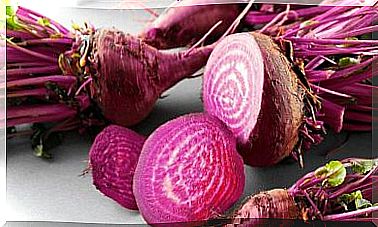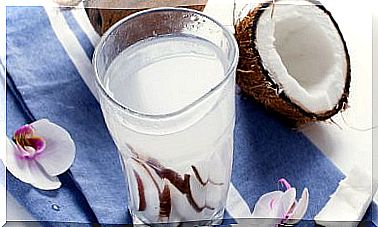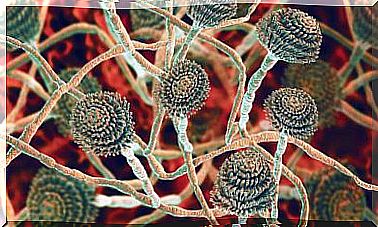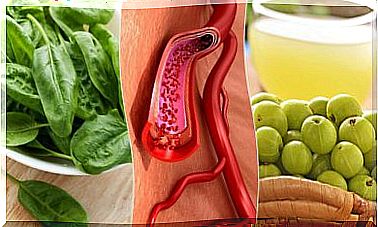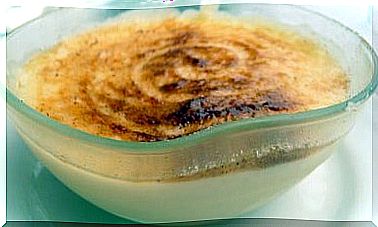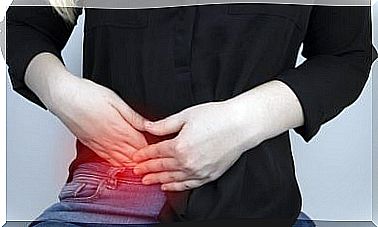Irritable Bowel Syndrome And The Role Of Diet
People who suffer from irritable bowel syndrome may feel insecure about continuing a normal life, due to the symptoms they may have. Controlling your diet is a great help to avoid breakouts, discomfort and pain. Even certain changes in diet can produce a significant improvement in the pathology.
That is why in this article we tell you how to improve this situation. You will learn what dietary strategies you can carry out to facilitate the management of the disease. We invite you to continue reading and learn more!
What is irritable bowel syndrome?
Irritable bowel syndrome (IBS), better known as irritable bowel, is a chronic functional disorder of the digestive tract. Its main symptoms are abdominal pain or discomfort, abdominal bloating and a change in bowel habits (constipation or diarrhea).
This syndrome is the most frequently diagnosed gastrointestinal disorder and the second leading cause of absenteeism after the common cold. Between 10-20% of the population experience irritable bowel symptoms in their lifetime. But, only 15% of those affected consult a doctor for it.
Diet for irritable bowel

The diet of the person with irritable bowel syndrome must be personalized to each case. As general guidelines we can highlight:
- Moderate the consumption of insoluble fiber (from whole foods) in the diet so as not to contribute more to imbalances in intestinal transit.
- Promote the consumption of soluble fiber (in the form of gums, pectins and mucilage) in the diet. It can be done with the help of foods like oatmeal or apples. The substances that these vegetables contain have been shown to be effective in treating inflammatory bowel diseases.
- Avoid foods rich in fat, citrus fruits (especially orange) and spinach to reduce and neutralize the laxative effect produced by bile salts (bile) in the colon.
- Decrease your intake of fructose (a type of simple sugar found mostly in fruits). Choose fruits poorer in sugar and richer in pectin, such as apple with skin. It is not suitable to drink fruit juices or nectars.
- Completely eliminate the consumption of sweeteners such as sorbitol, spicy foods or spices, gas (in drinks), coffee and tea.
- Drink two liters of water a day. It is very important to guarantee hydration when there is diarrhea. It is recommended to drink water or soft infusions such as linden and maría luisa (which do not have any laxative effect). In addition, a sufficient supply of fluids will also help combat constipation.
Irritable Bowel Syndrome and FODMAP diet
The FODMAP diet was developed by researchers at Monash University in Australia. FODMAP is the sum of the initials of the words in English that in Spanish are oligosaccharides, disaccharides, fermentable monosaccharides and polyols. They are all short chain carbohydrates.
Thus, the FODMAP diet is a diet without or without fructose, lactose, fructans, galactans and polyols, which are present in the following foods:
- Fruits: like apple and pear.
- Vegetables: such as onion, asparagus, and garlic.
- Legumes: such as peas, soybeans, and lentils.
- Cereals: wheat and derivatives, rye and barley.
- Nuts.
- Dairy: such as milk, cheese, ice cream, and yogurt. Assess tolerance.
- Artificial sweeteners: products containing sorbitol (E420), mannitol (E421), isomalt (E953), maltitol (E965) and xylitol (E967), etc.
What is the relationship between IBS and the FODMAP diet?
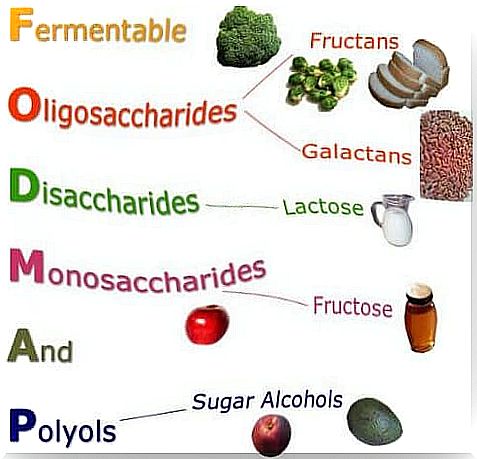
Fermentable oligosaccharides, disaccharides, monosaccharides, and polyols in some people are not 100% absorbed from the small intestine.
So these unabsorbed molecules continue on their way to the large intestine, where they act as food for the bacteria that normally live in it. There the bacteria ferment the FODMAPs and cause the symptoms described in the definition of Irritable Bowel Syndrome.
Therefore, a low FODMAP diet could help reduce the symptoms of irritable bowel syndrome and also other inflammatory bowel diseases such as ulcerative colitis or Crohn’s disease.
What the studies say. Is there consensus?
As a result of the first Australian investigations in 2005, there have been several studies that have been carried out to assess the possible effect of the FODMAP diet on Irritable Bowel Syndrome.
Much research confirms the positive effects of this diet on IBS patients and provides evidence for the use of the FODMAP diet as a treatment. But there is other research and health professionals who doubt the design and effectiveness of the diet as a treatment for IBS.
This is because some studies have found that there is little evidence to support the hypothesis and that the studies available so far have significant limitations. Despite this, the design and monitoring of the FODMAP diet by a dietitian-nutritionist is essential.
Optimize your diet to treat irritable bowel syndrome
Regardless of whether the FODMAP diet is more or less useful, it has been shown that carrying out certain eating habits improves the management of the disease. For this reason, we suggest that you follow the advice previously mentioned. If you are unable to experience any improvement, consult a professional.
